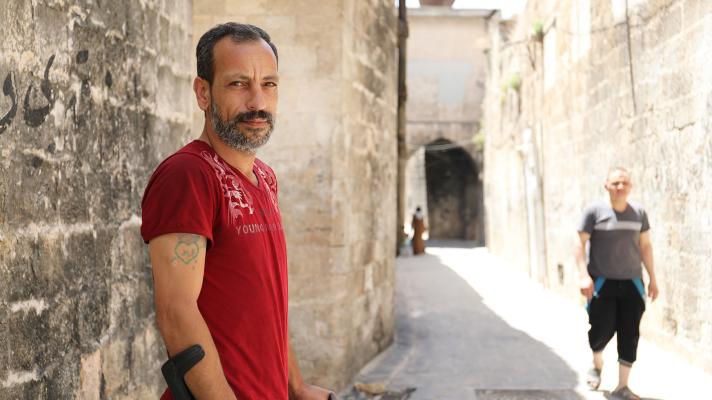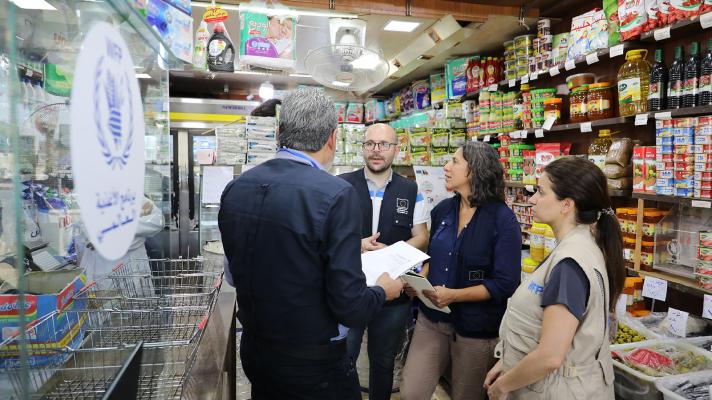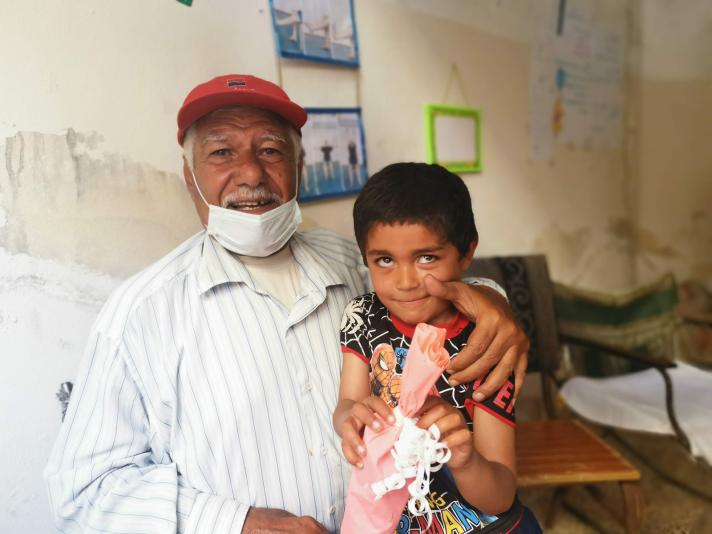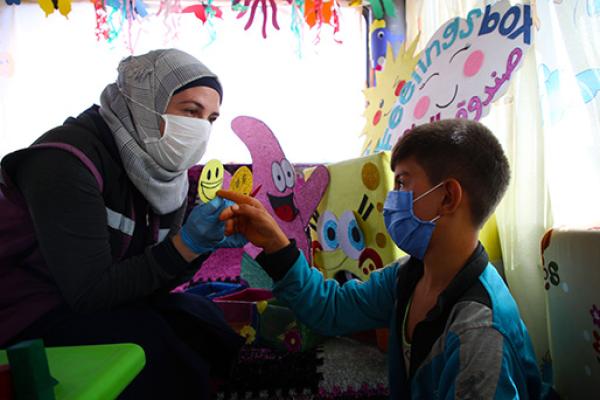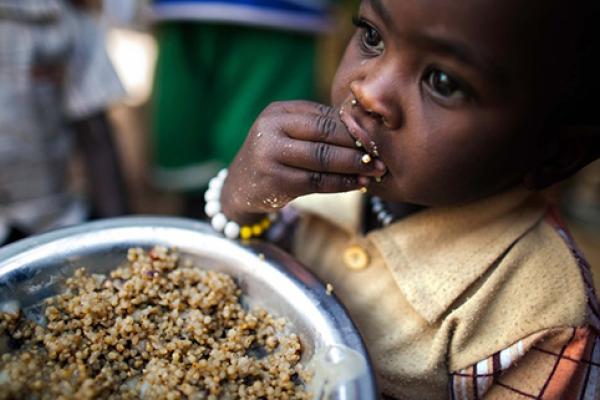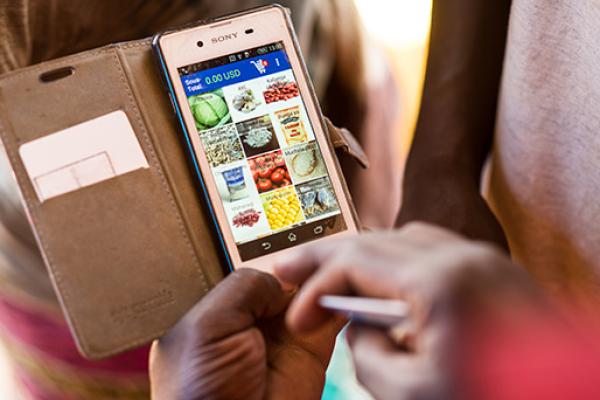Syria, a country that used to be self-sufficient in food production, now ranks among the 6 countries with the highest food insecurity in the world, according to the World Food Program (WFP).
WFP also reports that between 2020 and 2022, food prices in Syria increased by 532%, and the upward trend continues. The EU is funding cash and food assistance to help Syrians who struggle to feed their family.
As a boy, Maher never imagined that at 35 he would depend on handouts to feed his family. Back then, no one could predict the events that would so drastically alter the course of their lives.
“My only wish is to work again,” Maher says regretfully, hoping that one day he can raise enough money for a second operation to fix his leg. He was shot during clashes in Aleppo, Syria’s second city.
When Maher received his first instalment of EU-funded assistance from the World Food Program (WFP), he, his wife and 3 children ate meat for the first time in 6 months.
“Even if we are safer now, everything is getting more expensive,” he says. “If I cannot have debt, I reduce how often we eat or the type of foods such as meat.”
The EU funds the distribution of cash and vouchers to households across Syria that are in a weak position to cope with the misfortunes brought on by the crisis.
The aid is indispensable for families like Maher’s, but it also has a positive effect on the local economy. Mahmoud, one of the 20 retailers in Aleppo city partnered with WFP, opened a second store and employed 2 additional shop assistants to deal with the increased demand.
“Prices are getting higher, but if you can find the same product less expensive elsewhere, I’ll give it to you for free,” he boasts.
No aid without dignity
In the past decade, a whole generation of young Syrians has disappeared, either killed or uprooted. Many women with young children and older people were left behind.
70-year-old Waleed has stopped running errands with his motorised tricycle since fuel became too expensive. Enjoying a comfortable retirement is not in the cards despite having worked his entire life.
Seated in his living space, a converted storefront in a poor area of Aleppo, he keeps an eye on his 6-year-old grandson Ibrahim who sprints energetically up and down the street.
The power supply is at its lowest. Contrary to Aleppo’s better-off neighbourhoods, where generators hum throughout the evening, Waleed relies on electricity supplied through the grid, which comes on for just 2 hours a day.
Ibrahim’s parents have been out of the picture since he was 7 days old. They left him in the care of Waleed and his now deceased wife. Before mobile outreach volunteers learnt about their situation, the duo was struggling and often stayed without eating.
“The situation was really very bad. I asked many times for support, but everyone was taking care of their own business,” Waleed says.
Partially paralysed, he started receiving home-based care. Supported by the EU and the UN Refugee Agency (UNHCR), mobile community volunteers pass by regularly to clean and help. He also receives legal assistance in the hope of certifying he is Ibrahim’s legal guardian.
“He is the only one in my life, and I need to register my boy in school before I die,” he says.
Waleed repeatedly mentions that he, the boy, and the house are now clean. He positively beams when he points out his crisp striped shirt. It seems that living the rest of his life in dignity matters most.
Story by Anouk Delafortrie, Regional Information Officer for the Middle East and North Africa, EU Humanitarian Aid
Publication date: 14/10/2022

